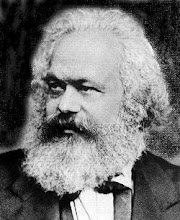Dr Sivia worked in the maths department at St John's college in Oxford
The wife of an Oxford University professor found dead at the home of a fellow academic said she believes his death was a 'tragic accident'.
Professor Steven Rawlings, 50, was found at the home of his best friend of more than 30 years, maths lecturer Dr Devinder Sivia, 49, on Wednesday.
Dr Sivia, from Southmoor, Oxfordshire, was arrested on suspicion of murder and released on police bail until April 18.
Today Prof Rawling's wife Linda Rawlings believed her husband's death was a 'tragic accident'.
The professor's older sister Linda Davey, 64, said: 'We can't think that there was any kind of fight. We can only assume that it was a terrible accident.'
Police confirmed this afternoon that a post-mortem had proved inconclusive and the matter might be a matter for a Coroner's inquest rather than a criminal court.
Police discovered the professor’s body after they were called about an ‘incident’ at Dr Sivia’s bungalow.
Further tests will be carried out over the next few weeks to discover the cause of death.
Det Supt Rob Mason, from Thames Valley Police's Major Crime Unit, said: 'A substantial amount of information is already in the public domain and we can confirm that the two individuals involved have been friends for over thirty years.
'I would emphasise that the police are investigating all potential circumstances that could have led to his death.
'We are mindful that ultimately the death may be a matter for a Coroner’s inquest rather than a criminal court and I would ask for patience from both the media and the public while we continue our investigation.
'Due to the post-mortem examination results proving inconclusive and further examinations being required, this has necessitated a lengthy bail date.'
A neighbour is said to have tried to save the dying man’s life by desperately pumping his chest. But minutes after officers arrived, Dr Sivia – who was dressed all in white – was led away in handcuffs after being arrested on suspicion of murder.
Read more:
http://www.dailymail.co.uk/news/article-2085873/Oxford-don-Dr-Devinder-Singh-quizzed-death-professor-Steven-Rawlings.html#ixzz1jNPfwTpt
 0
comments
Monday, 31 December 2012
0
comments
Monday, 31 December 2012

































